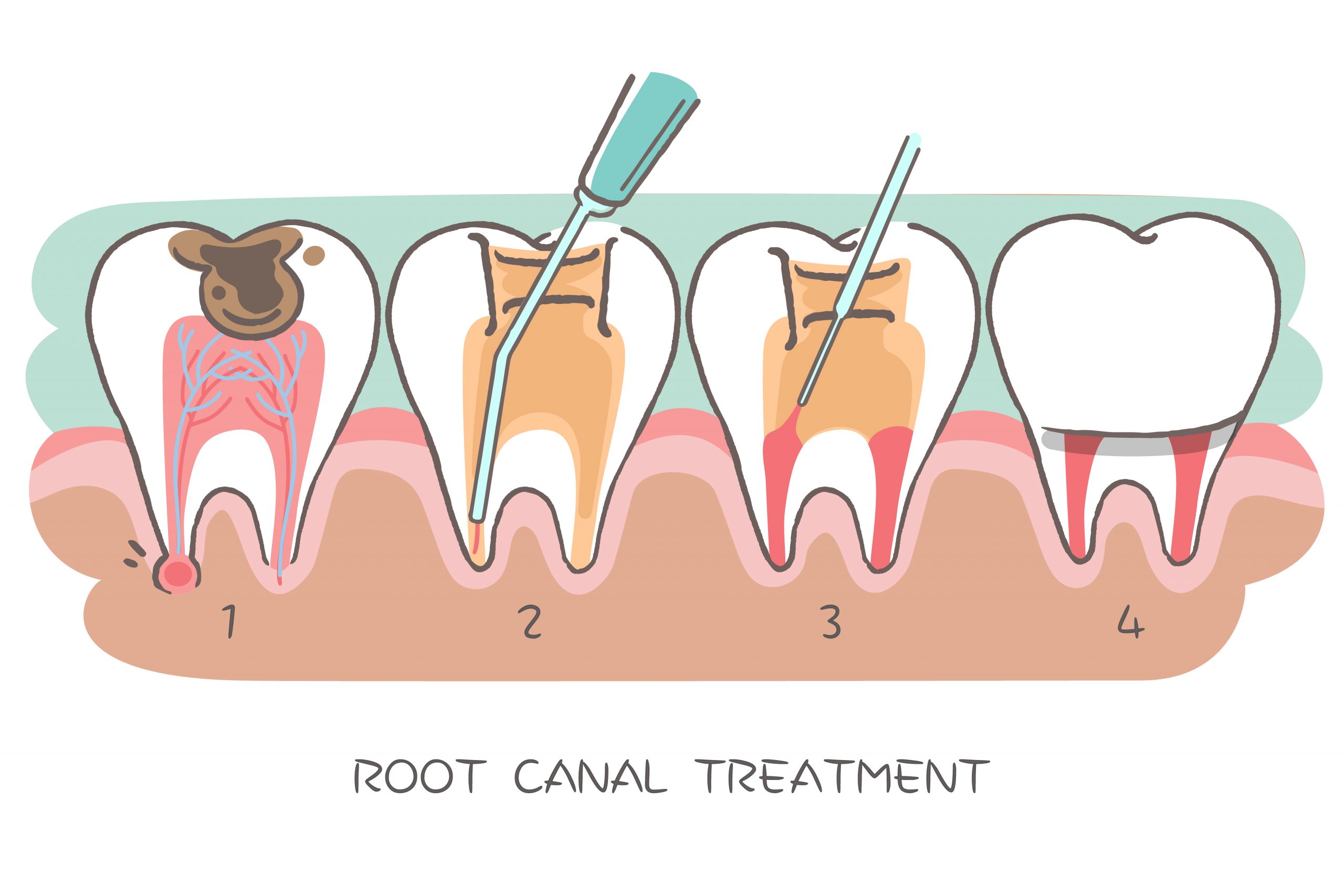Short answer: sometimes. It can be typical to install a crown right after a root canal procedure, but it won’t always be necessary. Although these dental treatments can help ease dental pain, clear infections and restore your tooth, it can feel stressful to have to get a crown after a root canal procedure. Yet, oftentimes, a dental crown completes the root canal therapy ensuring that you have a whole tooth. Read on to learn when exactly will you need a crown after a root canal procedure and what you can expect.
What are dental crowns?
A dental crown, also called a dental cap, is designed to fit over your entire tooth. They are made from tooth-colored materials and worn over your tooth to offer protection. Dental crowns can keep your natural teeth from further damage caused by wear and tear, grinding, clenching, or tooth decay. Essentially, their role is to keep your tooth intact.
When are dental crowns needed?
Dental crowns are needed in instances where your natural tooth requires extra protection. They can be used to restore broken teeth and to protect a cracked tooth or a weak tooth. Dental crowns provide support to teeth that would otherwise be lost such as a worn-out tooth or one with a large filling.
When is a root canal necessary?
A root canal procedure involves removing damaged dental pulp to prevent further infection, ease tooth pain, and improve gum health. For this procedure, Dr. Paltsev will begin by making a small hole on the surface of the affected tooth. He would then remove the infected pulp and clean the insides of the tooth to remove any debris. After this, he will deal the tooth with a filling or a crown where necessary. Root canals are suitable for treating an affected tooth where an infection has reached the pulp.
Root canals and crowns
During a root canal procedure, Dr. Paltsev will remove the infected tissue to save the tooth as well as your gums. The pulp contains healthy tissues and nerves that your tooth needs for nourishment and support. Some of these dental tissues and nerves come out with the pulp, leaving your tooth brittle and susceptible to breaking.
Since dental crowns offer protection to a weak tooth, they become important to ensure that your root canal therapy achieves its aim. The tooth that’s left after root canal treatment may become weak and if left that way could end up breaking. Dental crowns keep this from happening as they protect the infected tooth over the long term and ensure that the tooth recovers from the root canal procedure.
Are crowns always necessary after a root canal?
Dental crowns are not always necessary after a root canal. Determining whether or not you need one will depend on how weak or strong your tooth is after the root canal procedure. Your tooth won’t remain the same after a root canal because most of the surrounding tissues and nerves may have been taken out. Dr. Paltsev will take a look to determine the strength of your tooth and whether it can function normally without breaking for a long time.
If your tooth has weakened from the root canal it means its structural integrity might be compromised, and you will need a dental crown. The procedure will typically begin with a temporary crown followed by a permanent crown. Not installing a crown could lead to losing your tooth altogether as it brittles and breaks away. Luckily, a dental crown can help you prevent this situation. Installing a dental crown completes the treatment process for restoring your tooth after an infection to the pulp. The temporary crown will keep the weakened tooth safe allowing it to recover from the root canal treatment.
Dental crown vs. root canal: a quick recap
Dental crowns and root canals are two different procedures but they go hand in hand when it comes to restoring your tooth after the pulp has been infected. While the root canal removes the damaged pulp and prevents future infection and tooth decay, a dental crown helps protect the weakened tooth so that it heals and eventually regains its strength and normal functioning. Because root canals can weaken the affected tooth, dental crowns become important to complete the healing process.
- Crowns are made in a dental lab to mimic your natural teeth and are worn over the tooth.
- They cover the entire surface and look and feel like your natural tooth.
- Root canals, on the other hand, involve reaching into your tooth to remove the infected pulp.
- While root canals restore the insides of your tooth, crowns support the outer structure of the tooth.
- The two work together to help ease pain, stop the spread of infection, and restore the function of your tooth so that your tooth feels normal again.
To sum up, it is in fact possible to have a root canal without a dental crown, but it will depend on the extent of the infection to the dental pulp and the state of the tooth after the root canal procedure. As we now know, if the tooth is too weak after the root canal process it is subject to breaking, which will of course create more problems for you down the line and will also mean the root canal procedure was wasted as you might end up having the broken tooth extracted. By avoiding a dental crown when needed, you could also be setting yourself up for a future dental emergency.
When Dr. Paltsev conducts a root canal on your tooth, he will be able to tell whether you need a dental crown or not. If you have had a root canal without a dental crown and your tooth now feels sensitive or brittle, it would be best to book an appointment to evaluate the state of your tooth.
Book your appointment with us at Little Green Building to examine your situation and determine the best dental care for you. We’ll help you get your tooth back to normal as quickly as possible!





